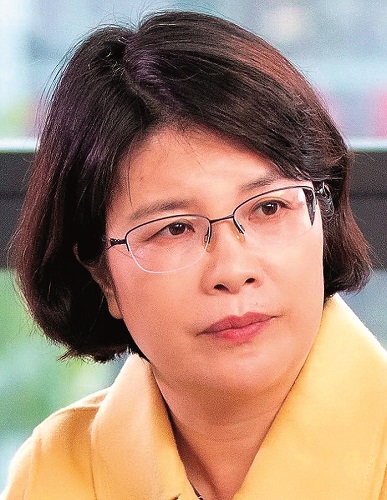Pioneer of railway ticketing system honored
China Daily | Updated: 2024-12-10 09:43

Shan Xinghua, a pioneer in modernizing China's railway ticketing system, was awarded the title "Role Model of the Times" by the Publicity Department of the Communist Party of China Central Committee on Monday.
As chief researcher at the China Academy of Railway Sciences Corporation, the 50-year-old Shan has dedicated her 28-year career to developing and advancing China's online railway ticketing system. Her contributions have helped to establish 12306, the world's largest real-time ticketing platform, which serves over 700 million users and handles more than 50 billion daily visits during peak periods.
Widely regarded as the "super brain" behind the 12306 platform, Shan has played a pivotal role in transforming railway ticketing from manual sales to fully digital operations and from station-based ticketing to a unified national network.
Shan began her career in 1996 when she joined a newly formed research team tasked with creating a unified national ticketing system. Over the years, she has guided the system through major milestones.
Today, the 12306 platform can issue over 1,000 tickets per second during peak periods, enabling users to secure their tickets in just 1.2 seconds.
When the system was first launched in 2011, it faced its biggest challenge during the 2012 Spring Festival travel rush, a time of intense demand. "At this critical moment, we had to overcome the challenges, no matter how difficult," Shan told her team.
At the time, a single ticket search could require tens of thousands of computations, considering train types, routes and seat availability. Shan and her team worked around the clock, analyzing system performance by day and testing optimizations by night. Their relentless efforts allowed the system to handle over 1.4 billion daily visits and double its peak-day ticket sales capacity to 1.2 million tickets during the 2012 Spring Festival.
Under Shan's leadership, the platform has become the primary ticketing channel for China's railway system, saving an estimated 300 million yuan ($41.2 million) annually in ticketing costs.
In 2017, Shan's team spearheaded the electronic ticket reform in Hainan province. They improved the speed of ID-based e-ticket gate processing by implementing self-developed artificial intelligence and parallel computing technologies, reducing the average gate-passing time to just 1.5 seconds.
Shan's expertise has extended internationally as well. Her team developed tailored ticketing systems for the China-Laos Railway, which began operations in 2021, and the Jakarta-Bandung High-Speed Railway, launched last year. Both systems were designed to accommodate local conditions and user preferences.
Shan has prioritized user-friendly innovations for diverse groups. Key reforms include online student identity verification, barrier-free interfaces for elderly users and group ticketing options for migrant workers.
Recent enhancements to the 12306 platform include onboard transfers, online seat selection, pre-filled ticket preferences and ticketing reminders.
Shan said her team had introduced many new features to improve ticketing efficiency and user-centric. "Technological innovation should ultimately serve society and improve people's lives," she said.
Li Shangyi contributed to this story.
























